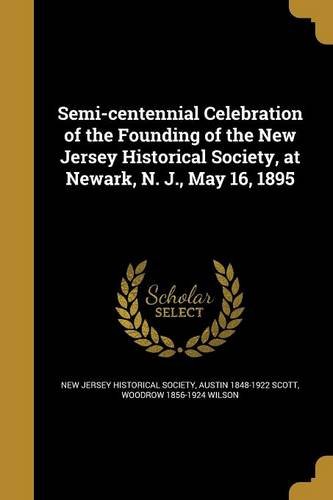Background
Austin was born on August 10, 1848 at Maumee, near Toledo, Ohio, United States, the son of Jeremiah Austin and Sarah (Ranney) Scott. He was named Frank Austin, but dropped the first name soon after reaching maturity.


( This work has been selected by scholars as being cultur...)
This work has been selected by scholars as being culturally important, and is part of the knowledge base of civilization as we know it. This work was reproduced from the original artifact, and remains as true to the original work as possible. Therefore, you will see the original copyright references, library stamps (as most of these works have been housed in our most important libraries around the world), and other notations in the work. This work is in the public domain in the United States of America, and possibly other nations. Within the United States, you may freely copy and distribute this work, as no entity (individual or corporate) has a copyright on the body of the work. As a reproduction of a historical artifact, this work may contain missing or blurred pages, poor pictures, errant marks, etc. Scholars believe, and we concur, that this work is important enough to be preserved, reproduced, and made generally available to the public. We appreciate your support of the preservation process, and thank you for being an important part of keeping this knowledge alive and relevant.
https://www.amazon.com/Semi-Centennial-Celebration-Founding-Historical-Society/dp/1371645795?SubscriptionId=AKIAJRRWTH346WSPOAFQ&tag=prabook-20&linkCode=sp1&camp=2025&creative=165953&creativeASIN=1371645795
Austin was born on August 10, 1848 at Maumee, near Toledo, Ohio, United States, the son of Jeremiah Austin and Sarah (Ranney) Scott. He was named Frank Austin, but dropped the first name soon after reaching maturity.
Graduated from Yale College with the degree of Bachelor of arts in 1869, Austin Scott spent a year at the University of Michigan, where in 1870 he received the degree of Master of arts; and then went abroad and studied at the University of Berlin and the University of Leipzig, receiving the degree of Doctor of philosophy from Leipzig in 1873. His chief interest was history, especially political history, and his ability and learning brought him into important connections even in student days.
In Germany, Scott assisted George Bancroft, at that time minister of the United States to Germany, in preparing his history of the United States. He was also charged with the responsibility of bearing important dispatches from Berlin to Washington.
On his return to the United States he was instructor in German at the University of Michigan from 1873 to 1875, and then, for seven years an associate in history at Johns Hopkins University, organizing there a seminar of American history. During this period he continued as assistant to Bancroft, assembling and arranging historical material for him.
In 1883 he was called to be professor of history, political economy, and constitutional law at Rutgers College. The subject to which he gave most attention was constitutional law and to his work in this field was due his chief distinction. In time his title became professor of political science. Austin Scott's eminence and influence as a teacher, his vigorous participation in all faculty activities, and his familiarity with certain administrative questions led to his election as president of Rutgers College in November 1890, and he was inaugurated February 1891.
During the entire time of his service as president he continued to some extent the teaching which was always the work most agreeable to him, and in 1906 he resigned the presidency in order to confine himself again to his professorial duties. For sixteen years more he gave valued teaching service to the students and generous administrative support to the succeeding president.
He took an active interest in the civic affairs of New Brunswick. For many years he was president and chief contributor to the Historical Club. In 1912 he was elected mayor of the city on the Democratic ticket and served in that office for three years with advantage to the material and moral welfare of the community. He was also one of the board of superintendents of the New Brunswick Theological Seminary.
He died at his summer home, Granville Centre, Massachussets.
Austin Scott remained with the Rutgers college during forty years, becoming at once an important influence in its life. He was the tenth President of Rutgers College (now Rutgers University) for fifteen years, during which time the college property and endowment were increased and the educational program enlarged. A gymnasium and a library were erected and the teaching staff was kept at a high level of efficiency. A friendly suit with the state resulted in a clarification of the relations between the state and Rutgers College, the scientific school of which had been made in 1864 the state college for the benefit of agriculture and the mechanic arts. Later he served as the Mayor of New Brunswick.
( This work has been selected by scholars as being cultur...)
Scott was an elder in the Second Reformed Church and took an important part in its enterprises.
Scott was an unusual teacher, with abundant learning in his field, fluency of speech, vivacity of manner, and a quick turn of wit.
On February 21, 1882, Scott married Anna Prentiss Stearns, daughter of Jonathan French Stearns of Newark, New Jersey.
